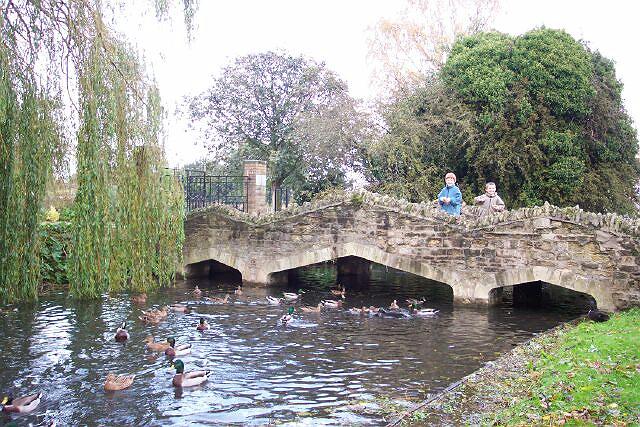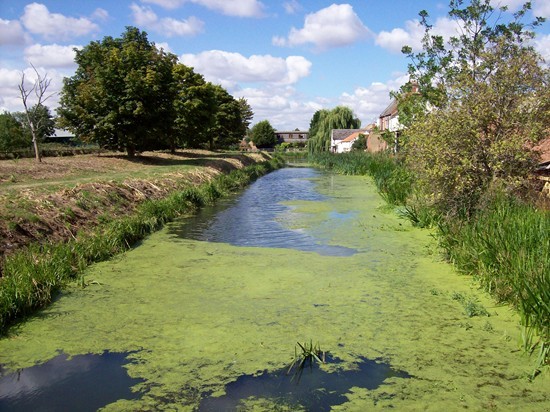|
THE HISTORY OF BOURNE is based on water and there is evidence that the area had seven natural springs that once yielded four and a half million gallons of water each day, water so pure that in Victorian times two factories operated to bottle and sell the product as mineral waters throughout the country. Bores and pumping in the area have lessened the power of these springs and since the centralisation of public water distribution and the establishment of Anglian Water, much of the supply is now piped to other areas to the detriment of the town. Water levels in the Bourne Eau are drastically lowered during dry spells and in time of drought, the river bed has been known to dry up completely, turning a local beauty spot into an eyesore and leaving its duck population which inhabits the river near the town centre marooned on the banks.
An equally attractive stretch of the Bourne Eau runs behind Eastgate. The river was used for navigation for many years although its function as a waterway was severely limited by its tendency to burst its banks and to become choked with mud but it was used to send corn and wool to the Midlands and Yorkshire and in return came coal which was unloaded and distributed from a wharf in Eastgate. Return to HOME PAGE MAIN INDEX
|

